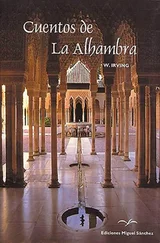Arrived at the part of the coast where a vessel is to meet them, they look out at night from some rocky point or headland. If they descry a sail near the shore they make a concerted signal; sometimes it consists in suddenly displaying a lantern three times from beneath the folds of a cloak. If the signal is answered, they descend to the shore and prepare for quick work. The vessel runs close in; all her boats are busy landing the smuggled goods, made up into snug packages for transportation on horseback. These are hastily thrown on the beach, as hastily gathered up and packed on the horses, and then the contrabandistas clatter off to the mountains. They travel by the roughest, wildest, and most solitary roads, where it is almost fruitless to pursue them. The customhouse guards do not attempt it: they take a different course. When they hear of one of these bands returning full freighted through the mountains, they go out in force, sometimes twelve infantry and eight horsemen, and take their station where the mountain defile opens into the plain. The infantry, who lie in ambush some distance within the defile, suffer the band to pass, then rise and fire upon them. The contrabandistas dash forward, but are met in front by the horsemen. A wild skirmish ensues. The contrabandistas, if hard pressed, become desperate. Some dismount, use their horses as breastworks, and fire over their backs; others cut the cords, let the packs fall off to delay the enemy, and endeavor to escape with their steeds. Some get off in this way with the loss of their packages; some are taken, horses, packages, and all; others abandon every thing, and make their escape by scrambling up the mountains. “And then,” cried Sancho, who had been listening with a greedy ear, “se hacen ladrones legitimos” — and then they become legitimate robbers.
I could not help laughing at Sancho’s idea of a legitimate calling of the kind; but the chief of customs told me it was really the case that the smugglers, when thus reduced to extremity, thought they had a kind of right to take the road, and lay travellers under contribution, until they had collected funds enough to mount and equip themselves in contrabandista style.
Towards noon our wayfaring companion took leave of us and turned up a steep defile, followed by his escopetero; and shortly afterwards we emerged from the mountains, and entered upon the far famed Vega of Granada.
Our last mid-day’s repast was taken under a grove of olive-trees on the border of a rivulet. We were in a classical neighborhood; for not far off were the groves and orchards of the Soto de Roma. This, according to fabulous tradition, was a retreat founded by Count Julian to console his daughter Florinda. It was a rural resort of the Moorish kings of Granada, and has in modern times been granted to the Duke of Wellington.
Our worthy squire made a half melancholy face as he drew forth, for the last time, the contents of his alforjas, lamenting that our expedition was drawing to a close, for, with such cavaliers, he said, he could travel to the world’s end. Our repast, however, was a gay one; made under such delightful auspices. The day was without a cloud. The heat of the sun was tempered by cool breezes from the mountains. Before us extended the glorious Vega. In the distance was romantic Granada surmounted by the ruddy towers of the Alhambra, while far above it the snowy summits of the Sierra Nevada shone like silver.
Our repast finished, we spread our cloaks and took our last siesta al fresco, lulled by the humming of bees among the flowers and the notes of doves among the olive-trees. When the sultry hours were passed we resumed our journey. After a time we overtook a pursy little man, shaped not unlike a toad and mounted on a mule. He fell into conversation with Sancho, and finding we were strangers, undertook to guide us to a good posada. He was an escribano (notary), he said, and knew the city as thoroughly as his own pocket. “Ah Dios, senores! what a city you are going to see. Such streets! such squares! such palaces! and then the women — ah Santa Maria purisima — what women!” “But the posada you talk of,” said I; “are you sure it is a good one?”
“Good! Santa Maria! the best in Granada. Salones grandes — camas de luxo — colchones de pluma (grand saloons — luxurious sleeping rooms — beds of down). Ah, senores, you will fare like King Chico in the Alhambra.”
“And how will my horses fare?” cried Sancho.
“Like King Chico’s horses. Chocolate con leche y bollos para almuerza” (“chocolate and milk with sugar cakes for breakfast”), giving the squire a knowing wink and a leer.
After such satisfactory accounts nothing more was to be desired on that head. So we rode quietly on, the squab little notary taking the lead, and turning to us every moment with some fresh exclamation about the grandeurs of Granada and the famous times we were to have at the posada.
Thus escorted, we passed between hedges of aloes and Indian figs, and through that wilderness of gardens with which the Vega is embroidered, and arrived about sunset at the gates of the city. Our officious little conductor conveyed us up one street and down another, until he rode into the courtyard of an inn where he appeared to be perfectly at home. Summoning the landlord by his Christian name, he committed us to his care as two caballeros de mucho valor, worthy of his best apartments and most sumptuous fare. We were instantly reminded of the patronizing stranger who introduced Gil Blas with such a flourish of trumpets to the host and hostess of the inn at Pennaflor, ordering trouts for his supper, and eating voraciously at his expense. “You know not what you possess,” cried he to the innkeeper and his wife. “You have a treasure in your house. Behold in this young gentleman the eighth wonder of the world — nothing in this house is too good for Senor Gil Blas of Santillane, who deserves to be entertained like a prince.”
Determined that the little notary should not eat trouts at our expense, like his prototype of Pennaflor, we forbore to ask him to supper; nor had we reason to reproach ourselves with ingratitude; for we found before morning the little varlet, who was no doubt a good friend of the landlord, had decoyed us into one of the shabbiest posadas in Granada.
*Note to the Revised Edition. — The Author feels at liberty to mention that his travelling companion was the Prince Dolgorouki, at present Russian minister at the Court of Persia.
*It may be as well to note here, that the alforjas are square pockets at each end of a long cloth about a foot and a half wide, formed by turning up its extremities. The cloth is then thrown over the saddle, and the pockets hang on each side like saddlebags. It is an Arab invention. The bota is a leathern bag or bottle, of portly dimensions, with a narrow neck. It is also oriental. Hence the scriptural caution, which perplexed me in my boyhood, not to put new wine into old bottles.
Table of Contents
To the traveller imbued with a feeling for the historical and poetical, so inseparably intertwined in the annals of romantic Spain, the Alhambra is as much an object of devotion as is the Caaba to all true Moslems. How many legends and traditions, true and fabulous; how many songs and ballads, Arabian and Spanish, of love and war and chivalry, are associated with this oriental pile! It was the royal abode of the Moorish kings, where, surrounded with the splendors and refinements of Asiatic luxury, they held dominion over what they vaunted as a terrestrial paradise, and made their last stand for empire in Spain. The royal palace forms but a part of a fortress, the walls of which, studded with towers, stretch irregularly round the whole crest of a hill, a spur of the Sierra Nevada or Snowy Mountains, and overlook the city; externally it is a rude congregation of towers and battlements, with no regularity of plan nor grace of architecture, and giving little promise of the grace and beauty which prevail within.
Читать дальше












